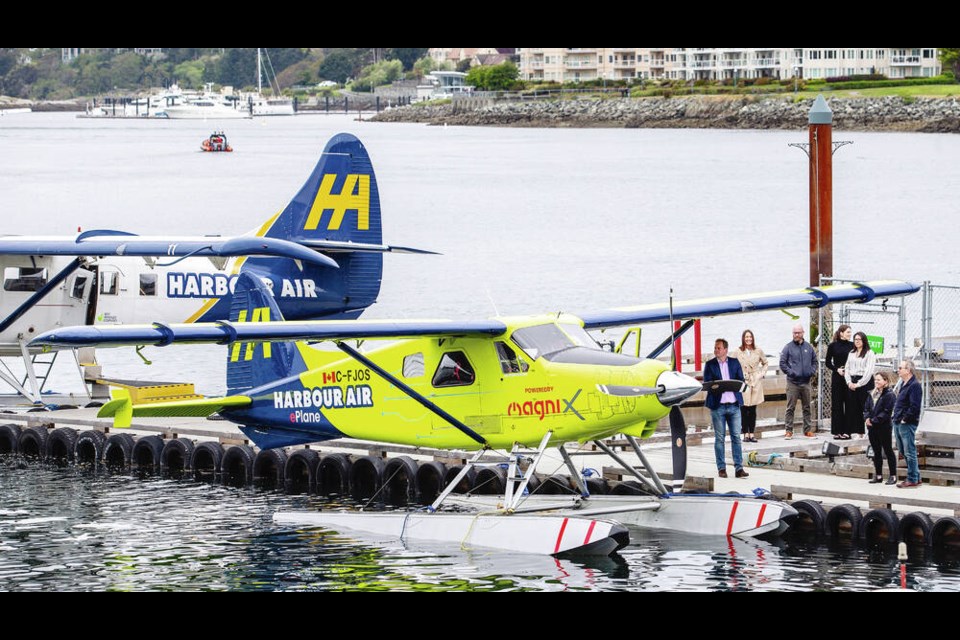Harbour Air’s electric plane, which could be offering passenger service between the Island and the mainland two years from now, is making its first visit to Victoria Harbour.
The bright green converted de Havilland Beaver floatplane will be at the company’s dock until Wednesday morning.
Greg McDougall, chief executive of Harbour Air Seaplanes, is hoping the plane will grab the attention of the federal government and convince it to contribute funds.
The company is also seeking a task force to co-ordinate efforts to certify electric aircraft through federal officials and Harbour Air working together.
“Canada has a chance to continue its amazing history on innovation in aerospace … and be the first to achieve electric passenger flight in the world and that’s making history,” McDougall said. “You don’t often get the chance to make history, real history.”
Harbour Air is sending officials to Ottawa to press its case, said McDougall, pointing out electric plane technology being developed would help meet federal environmental goals.
A Transport Canada test pilot will be working with Harbour Air shortly to verify specs on the aircraft.
In 2021, the province announced funding of close to $1.6 million to support Harbour Air through its CleanBC Go Electric ARC program.
Harbour Air is “ahead of the rest of the pack,” McDougall said. “We’ve got achievable goals.”
Last summer, the company completed a test flight between Richmond and the Saanich Peninsula, landing the plane in Patricia Bay near the Victoria International Airport.
McDougall came up with the idea of adding electronic flight to the company in 2018 and partnered with MagniX, an electric aircraft motor manufacturer in Washington state.
Harbour Air is working with battery companies Electric Power Systems of Utah, and H55 of Switzerland, which is building a plant in Quebec.
Harbour Air’s original plan was to get through the Canadian certification process required by Transport Canada within a couple of years to start carrying passengers by 2021.
But the pandemic “put the brakes on everything and then created all kinds of supply chain issues,” McDougall said. “Now we are now getting back with the program.”
Initial passenger service would likely be offered between Richmond and Nanaimo and Richmond and Victoria. Scenic tours could be offered, too, McDougall said.
A Beaver normally carries five passenger plus the pilot, but adding the electric motor and battery would reduce that to three passengers and a pilot.
Harbour Air says on its website that certifying installation of components where no certification path exists has been difficult. “Adding to the challenge has been using novel engine and battery technology.”
Fundamentally, “the technology has been outpacing the regulators,” the company states.
A different electric engine, called the magni650, will be replacing the current magni350 in the Beaver, McDougall said, bringing a high level of operational security in case of loss of power.
New batteries arriving in June are expected to be much lighter.
McDougall said that hydrogen is a promising technology but certification of a hydrogen propulsion system is needed first.
Paul Nursey, chief executive of Destination Greater Victoria, said Harbour Air is one of a growing number of partners in the organization’s biosphere certification program, which reflects a commitment to 17 sustainable development goals of the United Nations.
“We are all working together to make this a very clean destination,” Nursey said.
Environmental sustainability is an important deciding factor for many travellers, including meeting planners, he said.



